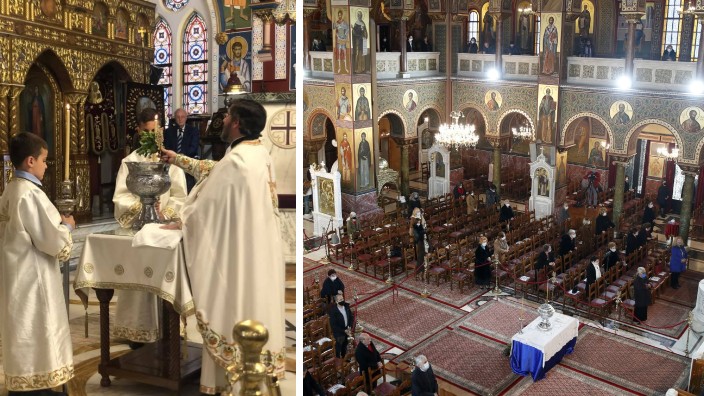Greek Orthodox people celebrated the Epiphany on Wednesday in Greece and Australia in the middle of the coronavirus pandemic, meaning many of the usual traditions were more subdued but still heart-warming.
We take a look at how both countries marked the important Christian event.
Greece:
The Greek government relented and allowed limited attendance at churches celebrating the feast of the Epiphany on Wednesday, reversing a ban on attendance designed to limit the spread of the coronavirus.
READ MORE: Greek Orthodox churches in Greece to defy lockdown by opening for Epiphany.
The decision came after Greece’s Orthodox Church said on Monday it would defy the government lockdown order imposed to limit the spread of the coronavirus and open churches to the faithful during the Epiphany celebration on January 6.
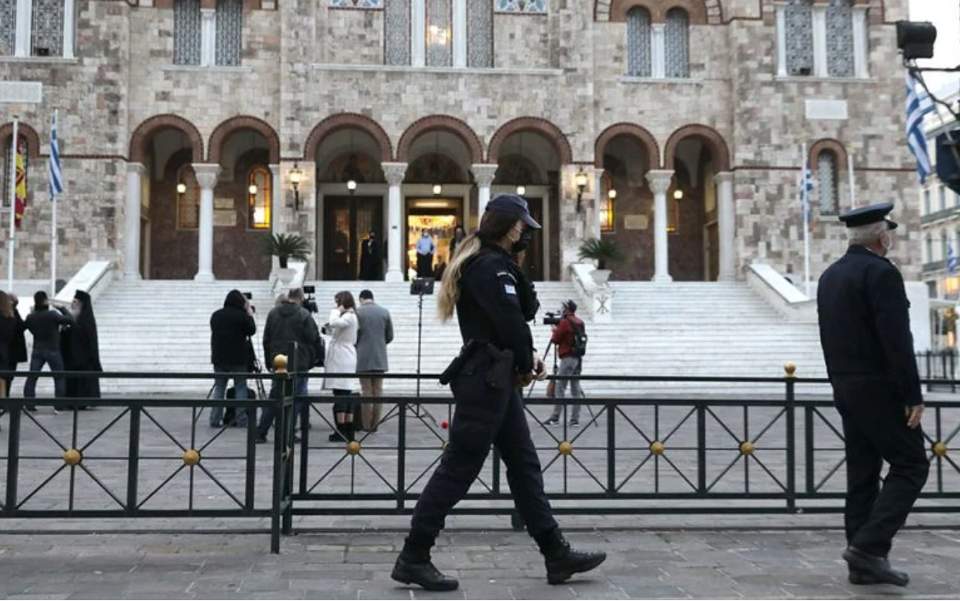
On the day, not all churches opened their doors to the faithful during services but, in those that did, congregations were limited from 25 to 50 people, for the largest churches. In some cases of overflow, the faithful were allowed in, a few at a time, for private prayers after the service was over.
As per a previous agreement between the Greek Church and the government, the traditional blessing of the waters also took place inside the churches and not in the open, in rivers and beaches, as is customary.
READ MORE: The Epiphany: What is it and why do Greeks celebrate it?
Australia:
The Greek Orthodox faithful in Australia also celebrated the feast of the Epiphany in a more subdued manner.
In New South Wales, His Eminence Archbishop Makarios held a special Divine Liturgy at the Greek Orthodox Cathedral of The Annunciation of Our Lady in Redfern, Sydney.
Archbishop Makarios then preceded to bless the faithful with agiasmo (Holy Water) and gave a small speech speaking about the meaning of the Epiphany.
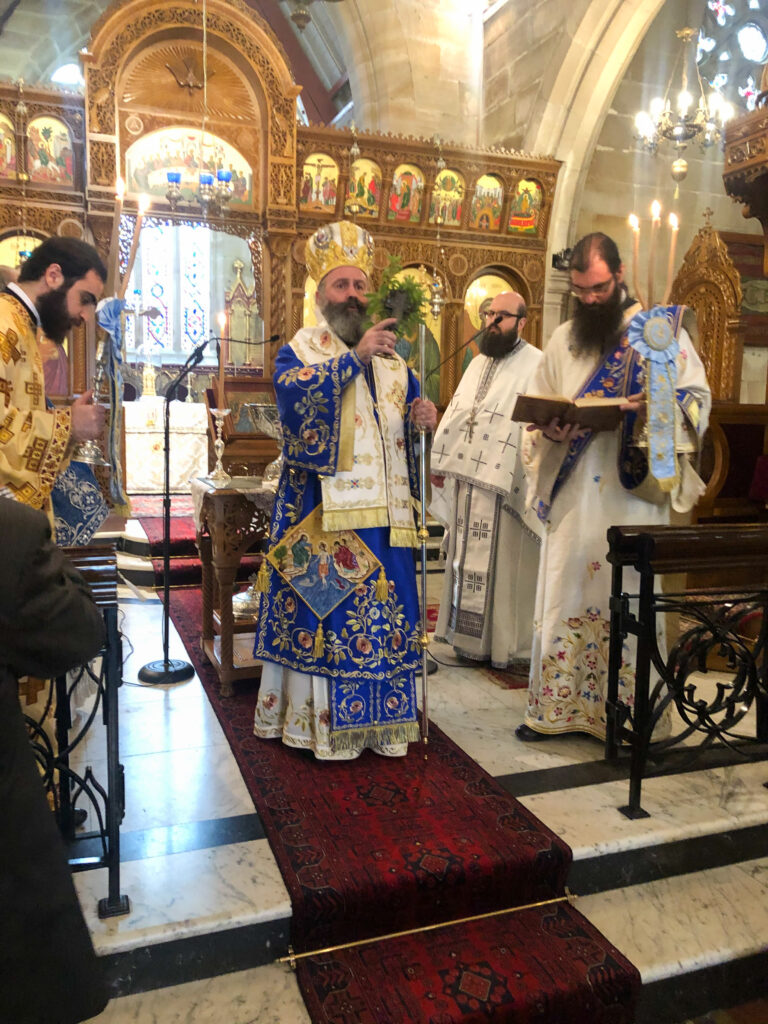
His Eminence Archbishop Makarios held a special Divine Liturgy. 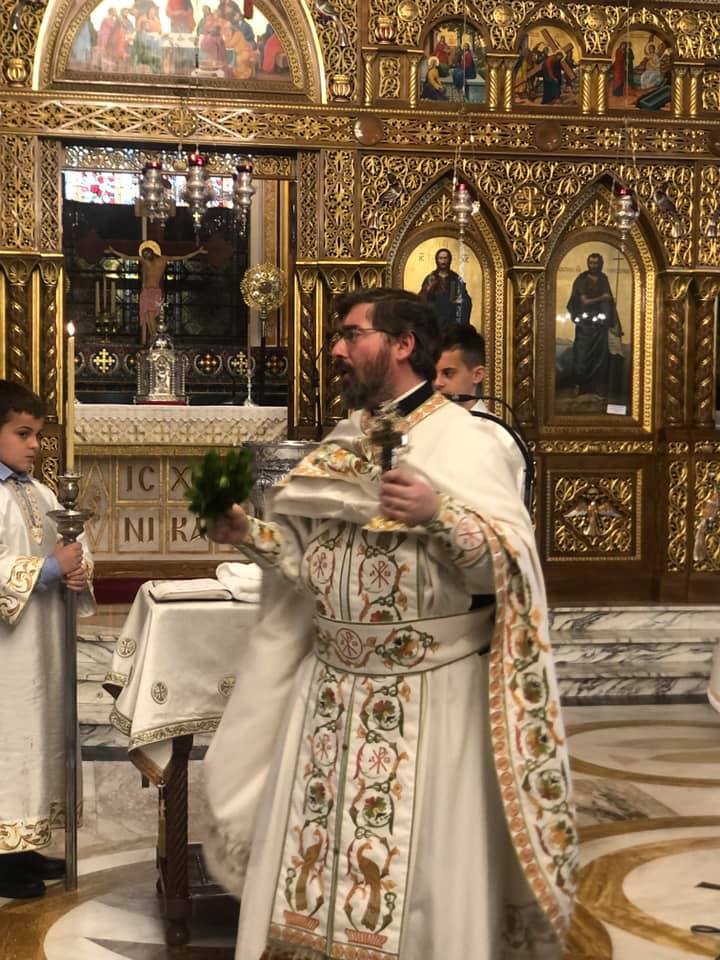
The Epiphany celebration at St Nectarios Greek Orthodox Church in Burwood. Photo: Facebook.
In other churches across the state, the ceremony was much the same. For once, churches were not overflowing with people due to the current coronavirus restrictions in place, which say that capacity at a place of public worship must not exceed 100 visitors or one visitor per 4 square metres.
READ MORE: Greek Orthodox churches in Australia adapt house blessings for Epiphany this year.
People who attended the service were also wearing mandatory masks, as stipulated by the NSW Government.
In South Australia, at the Greek Orthodox Community and Parish of Prophet Elias in Norwood, the Epiphany was also celebrated but due to the restrictions being less tough in the state, more parishioners were allowed inside the church and masks were not mandatory.
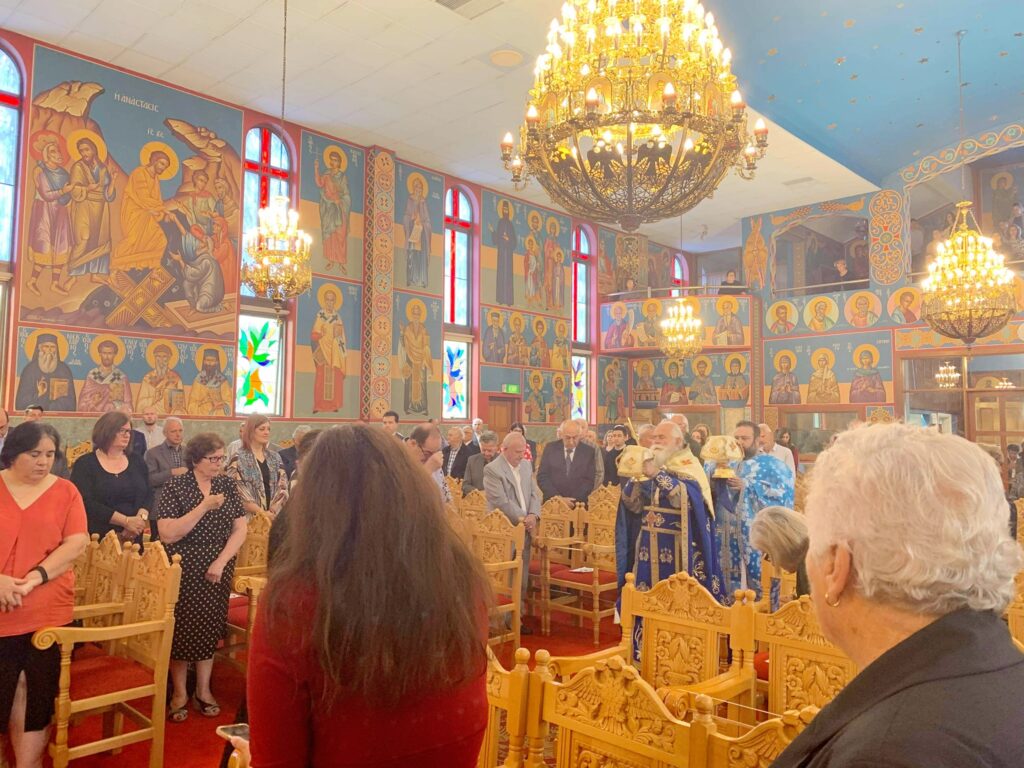
With regards to the traditional blessing of the waters, the Greek Orthodox Archdiocese of Australia announced that the event will not go ahead this year in Sydney, Victoria and Western Australia.
READ MORE: Announcement regarding the Celebration of Theophany in Australia.
House blessings have also been adapted to the current pandemic, with some churches in NSW cancelling them all together, while others are offering cups of Holy Water for people to take home instead.

